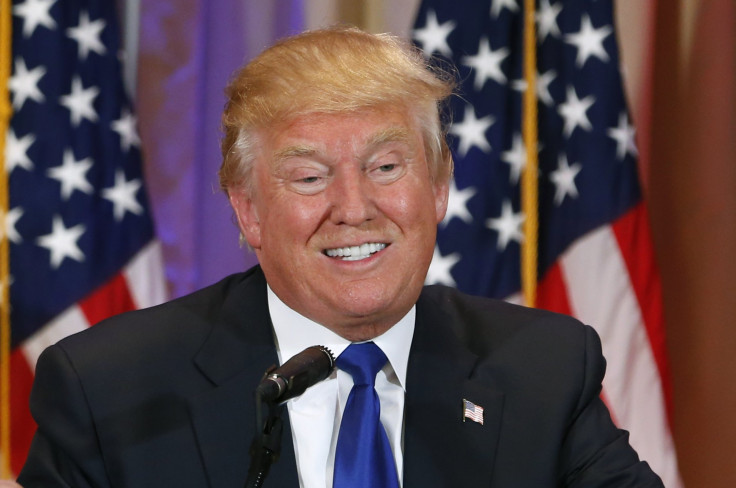Donald Trump Healthcare Plan Offers Gifts To For-Profit Insurers

Donald Trump released his official healthcare plan Wednesday evening, pledging to repeal the Affordable Care Act and replace it with a series of laws that he says could be even more beneficial for the private insurance industry than President Barack Obama’s signature healthcare law.
Obama’s legislation delivered big gifts to private insurers: It mandated that Americans buy those insurers’ products, provided taxpayer subsidies to the industry and avoided creating a government-sponsored “public option” to compete with for-profit healthcare companies.
Among his initiatives for replacing Obamacare, the leading GOP presidential candidate is proposing legislation to allow private insurance companies to sell their products across state lines — an idea that's been pushed by most national Republican leaders for more than a decade. In practice, such a law could reduce the power of individual states’ public officials to oversee the private insurance industry’s pricing policies. But, critics say, insurers would be permitted to congregate in the states that have the fewest consumer regulations, and then sell their products into other states, thereby avoiding those locales’ regulations.
To demonstrate how this would happen, some point to the effects of a 1978 Supreme Court ruling allowing banks to sell their products across state lines. With the ruling in hand, major credit card companies set up shop in states with the weakest usury laws and then sold their high-interest products to consumers throughout the United States, leaving other states’ regulators with less power to crack down on predatory practices.
In his proposal, Trump says allowing insurance to be sold across state lines will end up “allowing full competition in this market” so that “insurance costs will go down and consumer satisfaction will go up.” However, in 2012, Georgetown University researchers looked at states that had enacted legislation to encourage cross-border insurance commerce. They found that the initiatives “do not address the true drivers of health insurance costs nor do they adequately take into account the complexity of how insurance products are sold and regulated.” They also found that “none of the across state lines laws resulted in a single insurer entering a new market or the sale of a single new insurance product.”
Trump also proposes a gift to the insurers through the tax code: He says he wants to “allow individuals to fully deduct health insurance premium payments from their tax returns under the current tax system.” In many cases, such premiums are already deductible from individuals’ taxes — but in some cases they are not, suggesting Trump wants to expand the deduction.
Such so-called “tax expenditures,” which effectively force all taxpayers to subsidize such deductions, are a boon to the private insurance industry, offering consumers a government-sponsored incentive to buy private insurance — one that already costs public coffers hundreds of billions of dollars a year. By contrast, Vermont Sen. Bernie Sanders’ Medicare-for-all proposal aims to eliminate such tax expenditures for private insurance.
Trump’s healthcare plans appear to be less beneficial to pharmaceutical companies. He says he wants to “remove barriers to entry into free markets for drug providers that offer safe, reliable and cheaper products.” Giving “consumers access to imported, safe and dependable drugs from overseas will bring more options to consumers.”
Because other countries more strongly regulate the price of drugs, allowing Americans to import those medicines could reduce prices. With that in mind, Congress in 2000 passed legislation allowing Americans to import lower-priced FDA-approved prescription drugs from other countries — a practice already allowed by many other industrialized nations. However, Bill Clinton’s administration used its executive authority to prevent an importation program from being implemented.
The drug industry has continued to lobby against importation proposals, aiming to protect profits derived from charging Americans some of the highest medicine prices in the world.
© Copyright IBTimes 2024. All rights reserved.






















